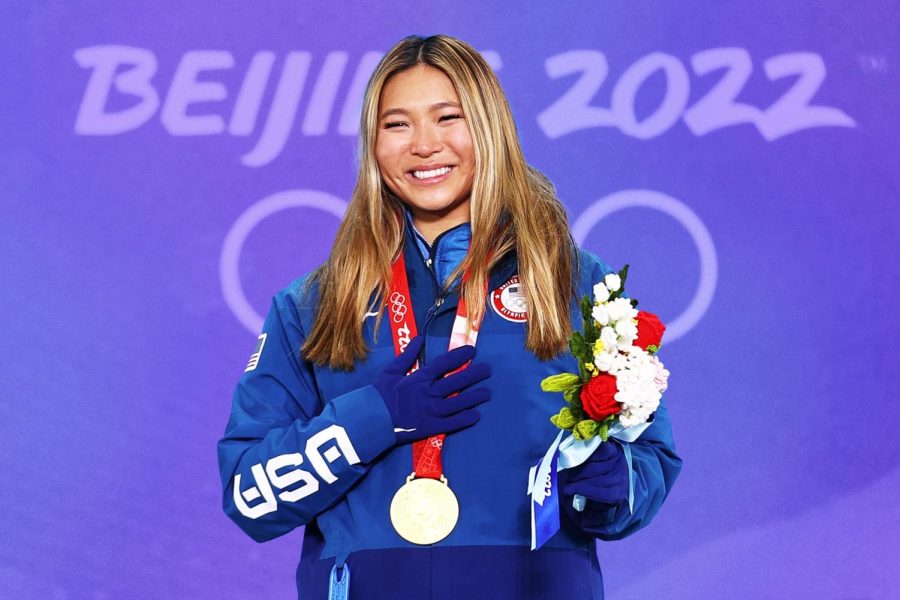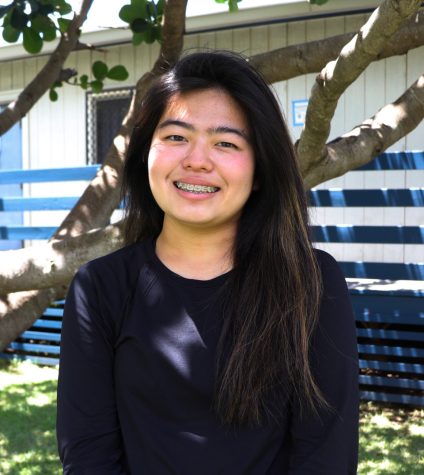Chloe Kim represents wave of AAPI athletes, a bigger win than gold
February 20, 2022
American Chloe Kim did it again. The 21-year-old snowboarder, clinched gold for the second time in the halfpipe at the 2022 Beijing Olympic Games, making her the first woman in history to ever win multiple medals in the event. Leading by a stunning four points from second place with an awesome first run, Kim was unstoppable.
Kim has made a name for herself not only with her extensive athletic feats, but also for the representation she has given to many Asian-Americans. Her success has undoubtedly touched lives, allowing them to see themselves on screen in a beautiful way.
“Chloe Kim, she’s done amazing, this Olympics and the past Olympics,” sophomore Brandon Samiano said. Samiano is Filipino-American. “She’s won multiple gold medals, which you know is amazing. She is the new wave of the Asian-American athletes in the Olympics.”
Kim, along with other star athletes who have represented the Asian-American community at this year’s Games–such as gold medal figure skater Nathan Chen and ice dancer Madison Chock–undoubtedly made an impact in a needed time.
“I think they’re doing great things for the community and it’s really showing, and it’s really putting us [in] the spotlight,” Samiano said.
The past two years have seen a great rise in Asian and Pacific Islander (AAPI) hate crimes. The increase is often connected to the Coronavirus pandemic and then-president Donald Trump’s harmful rhetoric blaming China for the virus. Other Americans lumped all AAPI people into one group they deemed “responsible” for the virus and ensuing lockdowns. With more than 9,000 anti-Asian attacks reported in 2020, and a spike of 300 percent in the following year (with many probably not even reported), Asians within not only the U.S. but in many similar places around the world have suffered a heightened level of xenophobia.
Kim herself has been subject to racist comments despite representing the country on a prestigious level. In 2019, Kim opened up to ESPN in an interview about receiving up to 30 messages a day, being called hurtful slurs and her achievements being belittled solely due to her Asian ethnicity.
“Just because I am a professional athlete or won the Olympics doesn’t exempt me from racism,” Kim said to ESPN.
Kim and other athletes have spoken out against the hate, sharing their experiences growing up as an Asian-American and being a minority within the sports industry. Their experiences are heartbreakingly similar to what many of the Asian-American community have gone through throughout the country.
“Her parents are immigrants, as are many of us Asian-Americans,” Samiano said.
Kim, who is Korean-American, and other Asian American athletes representing the U.S. on the global scale (and coming out on top) is a large deal. The picture of the Asian-American identity is mostly at times hard to draw; the questions of “how Asian” and “how American” you are are constantly circulating. For some, the AAPIs are “too Asian” from one side when they choose to eat their culture’s food, yet “too American” when they choose not to follow certain cultural traditions. The big one, of course, is being told you’re “not American at all” if you call yourself as such despite being born and raised in the country only due to your ethnic background.
The accomplishments of Kim have shown a positive light on Asian-American athletes and the community. Asian-Americans are exactly that; Americans who are also Asian, an identity that is able to coexist. The California native is proud of her Korean heritage, just as she presents her home country with pride on the halfpipe.


